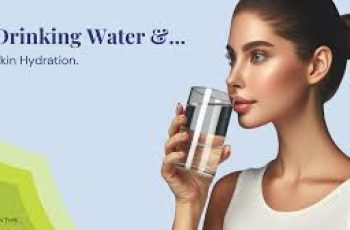
Ask Your Dermatologist: 4 Lies You’ve Been Told About Acne
If you suffer from acne, you’ve probably scoured the internet for the latest tips and tricks for clear skin. Sometimes the advice is useless, like rubbing toothpaste on blemishes or squirting salt water on your face. With so many different acne products on the market, it can be hard to tell which are legal and which are illegal.
With the help of Dr. Anthony Nuara, MD, FAAD, we’ll dispel some of the myths about acne treatments and causes, and tell you which products really help reduce and prevent acne breakouts.
What Causes Acne?
Acne is multifactorial, meaning it’s not caused by a single factor. What we know for sure is that acne spots form when pores become clogged with sebum (oil) and dead skin cells. This can appear as a blackhead or whitehead. Raised pimples form when the oil or dead skin cells become inflamed or infected by bacteria like Proteobacterium acnes.
But for those who regularly struggle with acne, what causes the excess oil, congestion, and inflammation? Here’s what science says:
Genetics: In a 20211 systematic review and meta-analysis, researchers found 60 genes associated with acne susceptibility. So if acne runs in your family, you may be troubled by it, too.
Hormones: Acne is often associated with teenagers for a reason: hormones. Hormonal fluctuations during adolescence can lead to increased sebum production and acne lesions, but fluctuations can also occur in adulthood. Women may suffer from acne at different times during their menstrual cycle or menopause. Men may struggle with acne if they have high testosterone levels or are taking hormone therapy.
Medications: Acne can also be a side effect of various medications, such as corticosteroids, lithium, vitamin B12, thyroid hormones, and antibiotics. 2
Lifestyle: This is a touchy subject. While stress, a poor diet, and lack of sleep don’t necessarily cause acne, they can trigger it in genetically susceptible people.
Now that you have a basic understanding of what causes acne, it’s time to correct some misconceptions. Here, four of the biggest acne myths debunked.
Azelaic Acid 14% Cream
Azelaic Acid 14% Cream
• Reduces acne and rosacea
• Brightens skin tone and reduces brown spots
• Unclogs pores and improves skin texture
Regular Price $45
Add to Cart
Myth 1: Drinking water gets rid of acne
Water is undoubtedly good for you and your skin, but it has no real therapeutic properties other than helping you wash your face. While research suggests that consuming enough water can have a positive impact on the skin by increasing elasticity (which can slow signs of aging), there is not enough evidence to determine how this affects acne marks. 3
Myth 2: Only teenagers get acne
I wish this was true. Adults often get acne, especially middle-aged women and those approaching menopause due to the dramatic hormone fluctuations during this time. Adult men and women who are taking hormone replacement therapy or have higher testosterone levels may also experience acne.
Myth 3: Eating junk food is the cause of acne
There is some truth to this. Studies have shown that a diet high in carbohydrates4 and refined sugars can exacerbate acne. 5These types of foods can increase serum triglycerides and increase sebum production, which can lead to clogged pores. Whey protein is known to make acne worse in young people. 6
Myth 4: Acne means you should clean your face more often
While hygiene is important for keeping your skin healthy, there is a limit to what you can scrub off. In fact, washing too often or scrubbing too hard can irritate your skin and even worsen acne. A gentle cleanser is a better choice, but if you choose a cleanser with alpha and beta hydroxy acids to open up your pores, use it with caution as they can irritate your skin.
Best products for acne
Niacinamide and azelaic acid are two powerful ingredients to add to your daily skincare routine. These two multi-tasking ingredients are gentle enough to be used together and can help eliminate breakouts and prevent them altogether. Here’s how they compare:
Foundation Skincare’s 10% Niacinamide Lotion: Based on moisturizing hyaluronic acid, this product helps inhibit sebum production, control and prevent acne while soothing the inflammation and irritation that comes with breakouts. Niacinamide also boosts the skin’s immunity to infection, fades acne scars, and aids in DNA repair.
Foundation Skincare’s 14% Azelaic Acid Cream: This must-have day cream contains a potent medical concentration of azelaic acid, a beneficial yeast with antibacterial, antioxidant, and anti-inflammatory properties. It removes acne-causing bacteria from the skin, reduces inflammation, and fades pigmentation caused by acne scars. Azelaic acid is also good for hormonal acne because it blocks the increased sebum production caused by elevated testosterone levels.
Women who experience hormonal imbalances or suffer from acne that causes scarring should consult a licensed dermatologist for further advice and an appropriate treatment plan.
Finding an acne treatment can be overwhelming, but it doesn’t have to be. The next time someone tells you a weird new trick, be sure to ask for evidence to back up their claims. There are countless myths and misconceptions about what causes acne and how to treat it, but once you start using the right products, the path to clear skin and the skin itself will become clear.


